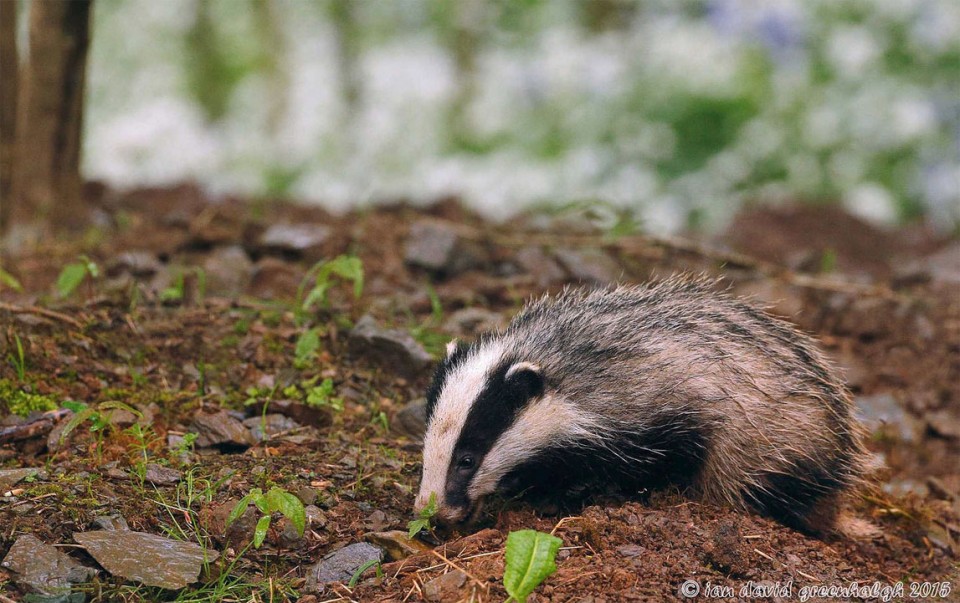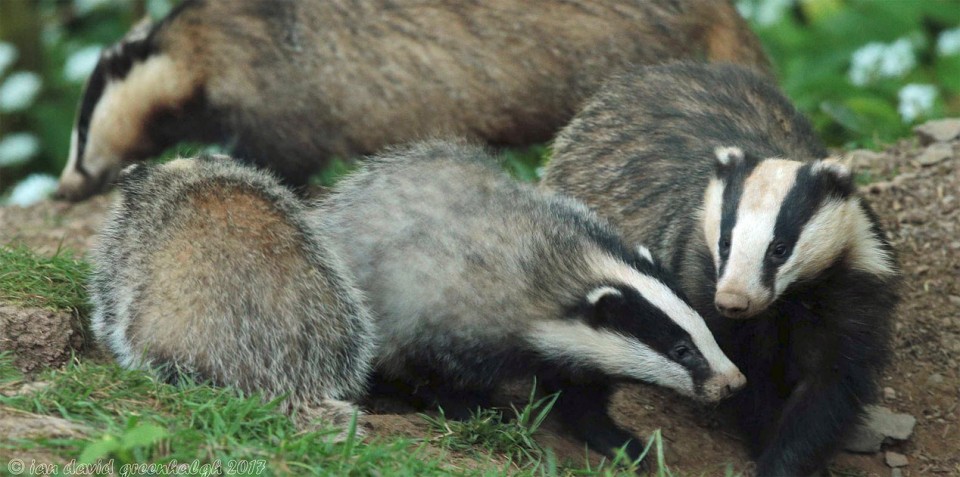European Badger Behaviour - Alloparental Care
European badgers are unusual among the mustelids because in parts of their range they live in highly social family groups (clans) and yet show little sign of any cooperative behaviour. Clan formation is typically associated with areas abundant in resources and with high population densities. In areas where badger density is low, such as the Scottish Highlands or much of Scandinavia, clans tend to consist of a "basic unit" of a male and female, very occasionally with a couple of related individuals. Where these subordinates persist, they do not appear to be “helpers” in the same way that can sometimes be seen in Red fox (and other canid) communities.

Studies on the alloparental behaviour (i.e. individuals raising cubs that aren't their own) of badgers have provided mixed results. The vast majority of observations have failed to find any evidence that subordinates help breeding individuals. Indeed, a recent scientific study, published in the Journal of Zoology, found that breeding sows with 'helpers' were actually in worse condition at the end of the breeding season than those without helpers! The study found that the majority of non-breeding females were sexually mature adults that had lost their own cubs and concluded that the negative effect of helpers was probably a result of intense competition for resources. Nonetheless, some reports of alloparental behaviour do exist.
In a paper to the journal Animal Behaviour back in 1993, Oxford University zoologist Rosie Woodroffe wrote of non-breeding sows babysitting and grooming cubs. Woodroffe described babysitters rounding up cubs that strayed too far from the sett, chasing a fox and a boar (who bit one cub) from the sett and mutual scenting, where cubs scent-marked babysitter and vice versa. On three occasions, Woodroffe observed a mother and a subordinate carrying the cubs from the chamber where they slept with their mother to one where the babysitter slept. In her paper, Woodroffe suggested that such examples of alloparental care may have been missed during previous observations because the watchers mistook babysitters for mothers. She also speculated that babysitting may occur earlier in the year, before the cubs emerge from the sett.

Coupled with Woodroffe's observations, there are reports of apparent kin selection (i.e. relative caring for their parent's offspring when the parent dies) from badgers, although such instances seem very rare. Overall, subordinate badgers don’t seem to have any input in raising the year’s brood; even taking Woodroffe's work into account there are no reports of subordinates suckling the cubs, or providing food for the mother or cubs. Instead, subordinates seem to perform general sett maintenance duties, such as expansion of the sett and changing of the bedding. Presumably, this assistance is particularly helpful during late winter and early spring when bedding may be dragged out of the sett and left in the entrance to 'air', which one assumes kills off lice, ticks and fleas that can parasitize badgers. The airing of bedding may be a crucial factor in the maintenance of the sett and there is some suggestion that at least some instances where badgers have spontaneously moved setts may be a response to a build-up of parasites in the bedding.
Adoption
I am not aware of any specific examples of clan females adopting cubs after the dominant sow dies but, writing in Badgers of Yorkshire and Humberside in 1974, Adrian Middleton described two occasions when a new sow appeared at the sett of an "old boar" in west Yorkshire accompanied by her cubs and the family were apparently accepted. Middleton makes no inference as to the relationship between the sow and old boar and no further conclusions can be drawn about whether this represented a genuine case of adoption by a dominant male. (This may, for example, have been an extra-clan mating by the old boar, thus making the him the father.)